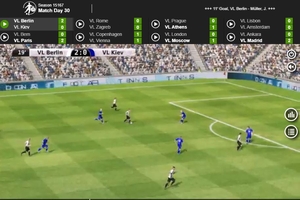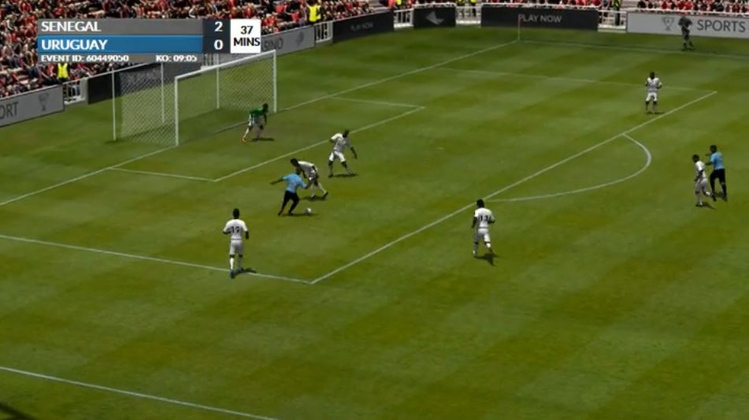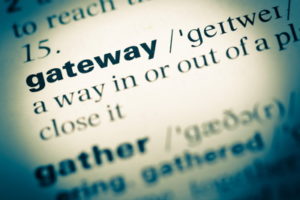 The world of virtual sports has taken off in recent years, with the likes of football, horse racing and tennis available to watch in a ‘virtual’ sense and bet on as you see fit. This is different from eSports, which is real people playing on computer games that you can place wagers on with certain bookmakers. Instead, virtual sports essentially involves computerised teams, horses or players taking each other on and punters having the chance to bet on them.
The world of virtual sports has taken off in recent years, with the likes of football, horse racing and tennis available to watch in a ‘virtual’ sense and bet on as you see fit. This is different from eSports, which is real people playing on computer games that you can place wagers on with certain bookmakers. Instead, virtual sports essentially involves computerised teams, horses or players taking each other on and punters having the chance to bet on them.
Virtual games are actually no different to the likes of slot games, in the sense that their outcome is controlled by Random Number Generators. They are tightly monitored and regulated, meaning that they are in no way ‘fixed’, that is unless you play with unlicensed and unregulated sites, where anything is possible.
While these games are fair it is worth pointing out they are games with fixed parameters and they do have terrible Return To Player percentages that mean you’re more likely to lose on them compared to betting on something like a general casino game, such as blackjack.
Virtual Sports Explained
 The best way to think of virtual sports is that they’re akin to a casino version of your favourite sports. If you played a computerised version of roulette, you would accept that it wouldn’t be the same as playing actual roulette in a physical casino. Whilst both are random in the results that they throw out, how they get to those results are very different. Physical roulette wheels use a ball, gravity and science, virtual ones use an RNG.
The best way to think of virtual sports is that they’re akin to a casino version of your favourite sports. If you played a computerised version of roulette, you would accept that it wouldn’t be the same as playing actual roulette in a physical casino. Whilst both are random in the results that they throw out, how they get to those results are very different. Physical roulette wheels use a ball, gravity and science, virtual ones use an RNG.
The same is true of virtual sports. Let’s imagine that you’re betting on virtual horse racing, having selected the favourite at odds of 2/1. At the same time, you’re betting on a real physical horse race that just so happens to have a favourite with odds of 2/1. In the real world, the horse that you’ve bet on is doing well but stumbles at the final fence, losing its footing and dropping down the places to finish fourth.
Meanwhile, in the virtual horse race, the horse that you’ve bet on never really gets going and struggles to keep up with the pack, finishing fourth. There is a temptation to think that there’s some sort of fix in place on the virtual horse race whilst you would never assume that of the real world one. The outcome of the horse finishing fourth is the same in both cases, with only the manner in which it happened being the difference.
Virtual sports mimic real sports as much as possible, with the events generated by a software programme that has to comply with a certain set of rules. The reason they sometimes get confused in the head of a bettor is that they look a lot like real sports, especially when you consider the brilliant graphics that exist in the modern world of sports betting. They use the real rules of the sports and often the actual competitors.
The biggest difference comes in how odds apply to events. Taking the example above, 2/1 odds on a horse in the real world is calculated partly based on its form and probability of winning but it is also partly based on how popular the horse is and how many people back it. Therefore in the real world it is common to find horses that have under and over priced odds depending on how many people back it. The savvy punter will spot this and find horses that are overpriced and this can be used by some to make money.
In the virtual world, however, odds of 2/1 on a horse is all based on the probability of it winning and is not swayed at all by how many other people back it, the odds remain fixed. This means this horse will win roughly just under 1 in 2 races over a selection of 1000’s of games. Therefore there is no additional edge to exploit as with the real world and therefore, as with any fixed odds game weighted in favour of the house, the more you play the more you are likely to lose. The fact these games have a poor RTP compared to other casino games is another reason why they are not good value even for a game.
Why People Like Virtual Sports
 The use of virtual sports has increased in recent times, thanks in no small part to the fact that they are ready to be bet on whenever the punter fancies. Instead of having to wait for an actual sporting event to take place, virtual sports can get underway at any time that there’s someone willing to bet on them. This means that you can place a bet on a virtual sport any time of day or night, which offers an obvious appeal to many.
The use of virtual sports has increased in recent times, thanks in no small part to the fact that they are ready to be bet on whenever the punter fancies. Instead of having to wait for an actual sporting event to take place, virtual sports can get underway at any time that there’s someone willing to bet on them. This means that you can place a bet on a virtual sport any time of day or night, which offers an obvious appeal to many.
Virtual sports also tend to appeal to younger bettors, those that have spent their lives playing on games such as FIFA and are quite used to fake sports. They also appeal to people who enjoy sports betting but don’t really tend to bet on casino games much, because they offer the appeal of both sides of the divide. Punters that bet on real sports regularly will innately understand how to bet on virtual sports straight away. This is why these games are used by companies as a gateway into gaming for sports bettors, you can read about this later.
Games From Licensed Companies Are Not Fixed
 The temptation to decide that virtual sports are fixed when you’ve placed a number of bets on them and lost them all is easy to understand. You can’t see the workings in the same way that you can with a real life, physical sport and so some people feel aggrieved when a bet that they thought was a banker ends up losing in virtual sports. Of course, this involves people essentially forgetting that banker bets often lose in real life too!
The temptation to decide that virtual sports are fixed when you’ve placed a number of bets on them and lost them all is easy to understand. You can’t see the workings in the same way that you can with a real life, physical sport and so some people feel aggrieved when a bet that they thought was a banker ends up losing in virtual sports. Of course, this involves people essentially forgetting that banker bets often lose in real life too!
Virtual sports use Random Number Generators to decide their outcome. RNGs have the ability to include things such as odds into how they work, which often confuses some punters into thinking that the bet will definitely be a winner. The best way of explaining it is by imagining that you’ve got tennis balls on which you’re writing the numbers 1 to 10. You are going to pull a ball out of a bag at random and reveal the winning number.
If you placed one ball with each number into the bag then there would be exactly the same odds of each number being drawn. If, however, you placed the following numbers of balls into the bag then the odds of pulling given numbers out would differ:
- 1 – ten balls
- 2 – nine balls
- 3 – eight balls
- 4 – seven balls
- 5 – six balls
- 6 – five balls
- 7 – four balls
- 8 – three balls
- 9 – two balls
- 10 – one ball
There is still a chance that you could draw the number 10 ball out of the bag, but there is much less chance of that happening than one of the other balls being drawn. The number 1 ball has the most chance, but there’s no guarantee that it will be drawn. That is an extremely simplistic way of explaining how Random Number Generators work; every outcome is possible, but some are more likely to happen than others.
They Are Gateway Games To Casino / Slots
 The reality is that betting companies use virtual sports as gateway games into their casino offerings. A lot of sports bettors don’t tend to play casino games, instead favouring the world of real life sports that they know and understand. The world of virtual sports is tempting to them because they understand aspects of them, such as how the bets actually work and therefore get lured in to bet on virtual versions of sports that they’re used to.
The reality is that betting companies use virtual sports as gateway games into their casino offerings. A lot of sports bettors don’t tend to play casino games, instead favouring the world of real life sports that they know and understand. The world of virtual sports is tempting to them because they understand aspects of them, such as how the bets actually work and therefore get lured in to bet on virtual versions of sports that they’re used to.
Once they’ve played virtual sports for a while, they will then be more likely to bet on other ‘virtual’ versions of real things, such as computerised casino games. This is a win-win for betting companies, because not only do they persuade predominantly sports bettors to play some casino games in the long-run but in the short-run they get them playing on virtual sports games that have much worse RTP percentages.
The Return To Player percentage is the amount of money that is paid out to players over a period of time. It is not how much you’ll win back in your session, but rather how much all people playing that game will be paid back over a period such as a year, say. If an RTP on a game is 95%, that doesn’t mean that all players will get 95 pence back on each £1 wagered but rather that one player might get 50 pence and another £1.50, for example.
RTP percentages on virtual sports are usually much poorer than they are for casino games, sometimes being as much as five or ten percent worse off. When you bear in mind that some casino games, such as blackjack, allow you to shift the RTP even more in your favour by opting to play a strategy, it makes much more sense to try and avoid virtual sports and instead head straight to the casino.
